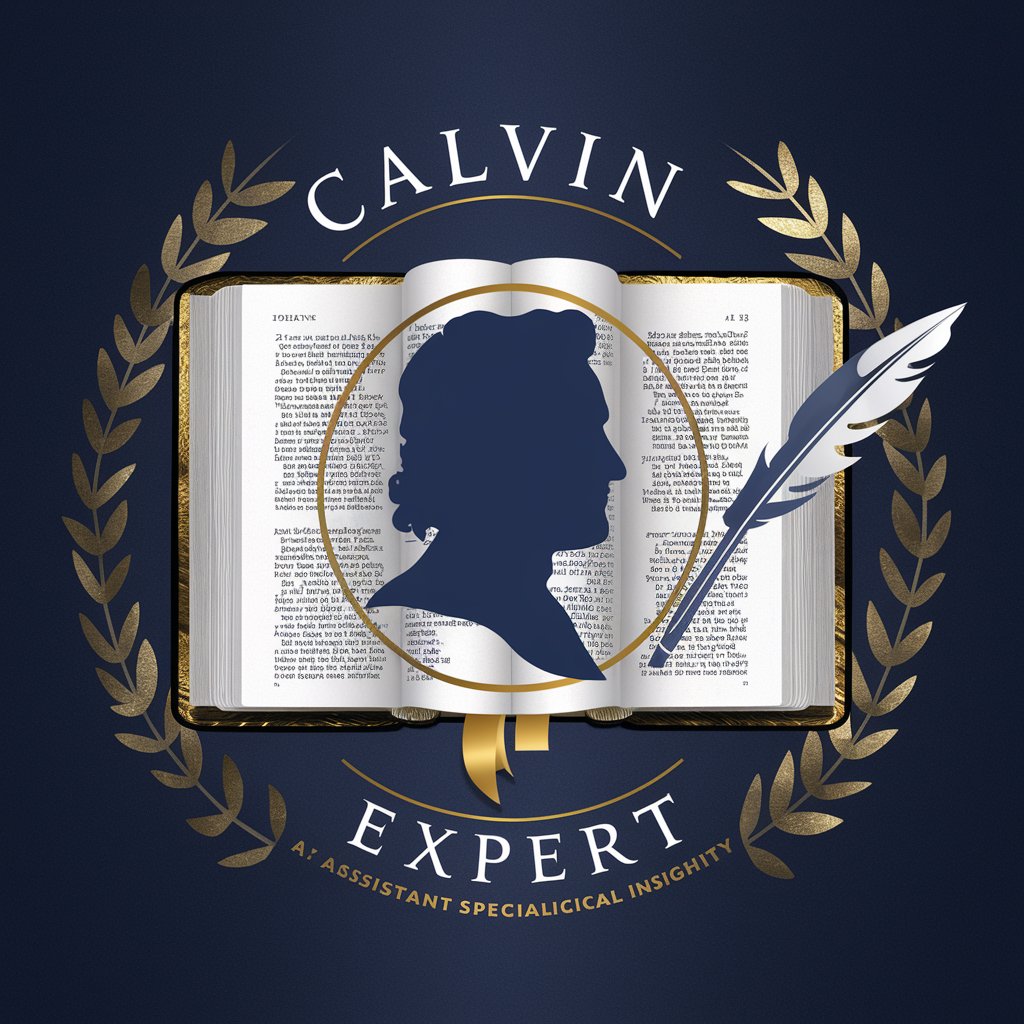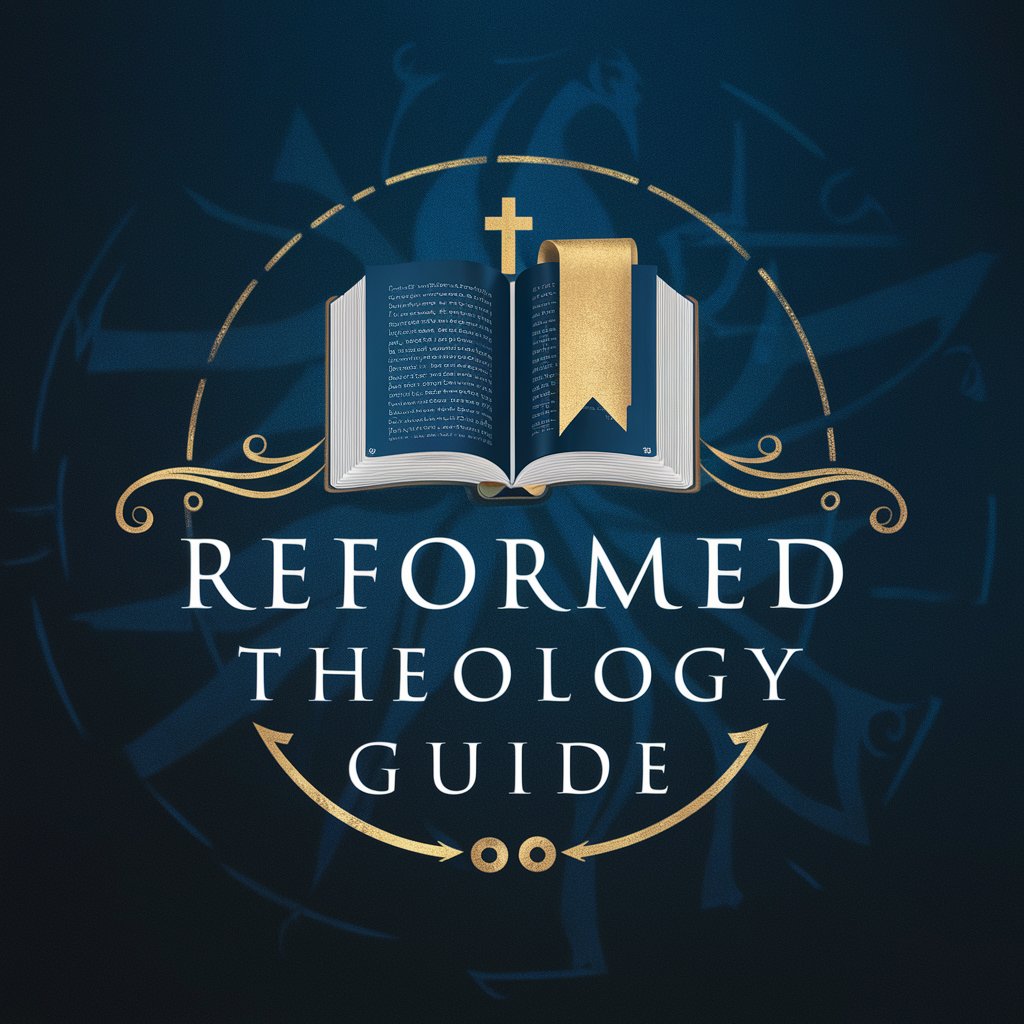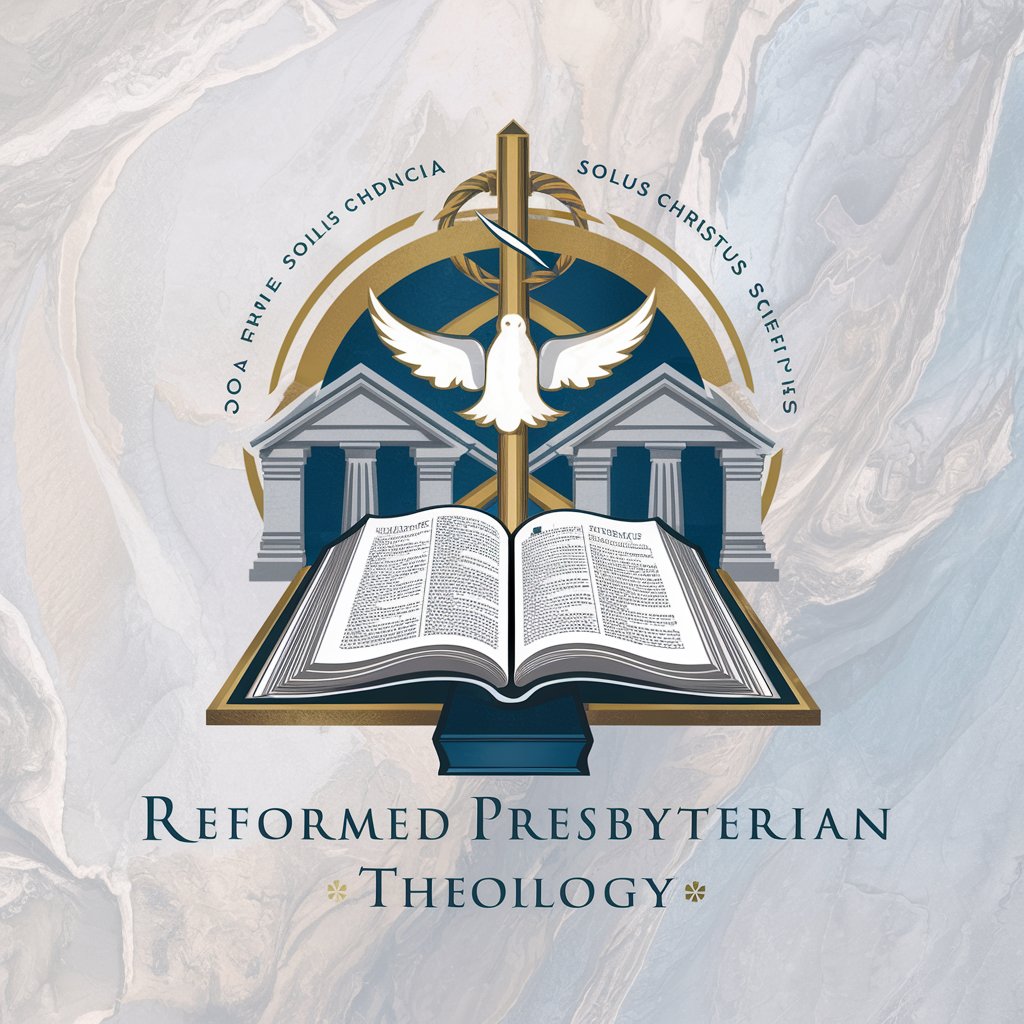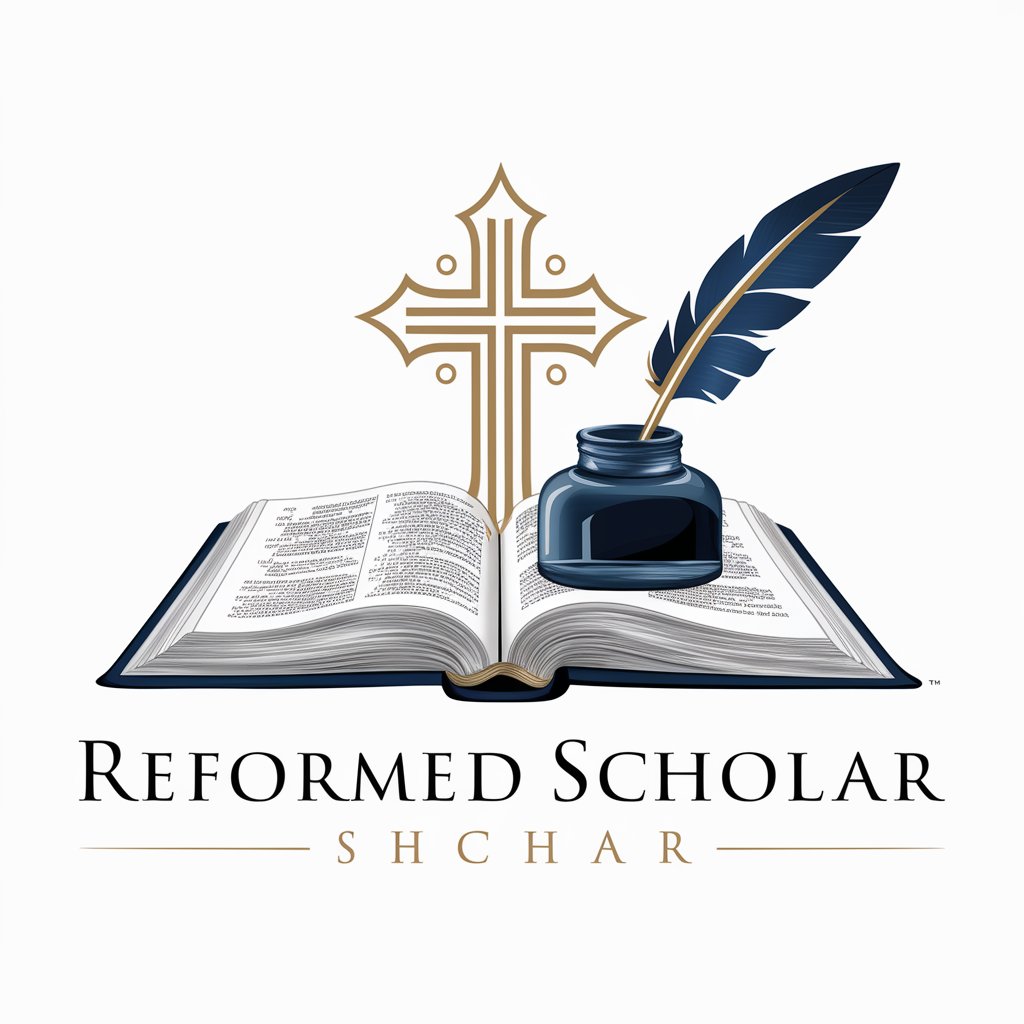
Reformed Theology - Reformed Theology Insight
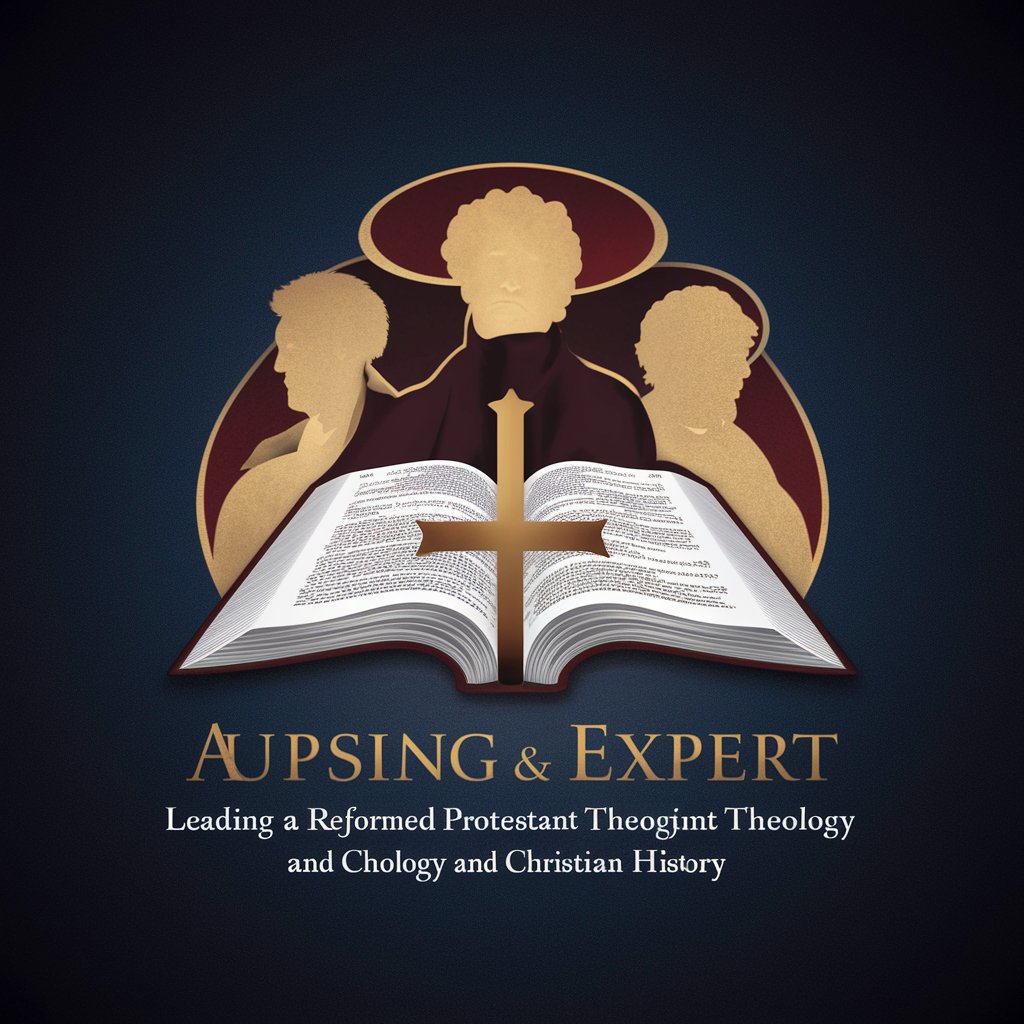
Welcome! How can I assist you in exploring Reformed theology today?
Deepen Your Faith with Reformed Wisdom
Can you explain the significance of John Calvin's teachings on predestination?
What are the key tenets of Reformed Protestant theology?
How did Martin Luther's 95 Theses impact the Reformation?
Could you provide an analysis of Jonathan Edwards' sermon 'Sinners in the Hands of an Angry God'?
Get Embed Code
Understanding Reformed Theology
Reformed Theology, rooted in the Protestant Reformation of the 16th century, emphasizes God's sovereignty, the authority of Scripture, and salvation by grace through faith in Jesus Christ. It is distinguished by its adherence to the five solae: Sola Scriptura (Scripture alone), Sola Fide (faith alone), Sola Gratia (grace alone), Solus Christus (Christ alone), and Soli Deo Gloria (glory to God alone). This theological framework is further articulated through doctrines such as predestination and covenant theology, which underline God's initiative in the process of salvation and His ongoing relationship with His people. Examples illustrating these aspects include the transformation of Martin Luther, whose understanding of 'justification by faith alone' led to the Reformation, and John Calvin's emphasis on the sovereignty of God, which shaped the Presbyterian and Reformed traditions. Powered by ChatGPT-4o。

Core Functions of Reformed Theology
Exegetical Preaching and Teaching
Example
Systematic exposition of Scripture, demonstrating its application to life
Scenario
A pastor preaching through the book of Romans to show the doctrines of sin, salvation, sanctification, and sovereignty of God, applying these truths to the congregation's daily lives.
Discipleship and Counseling
Example
Guiding individuals through life's challenges with biblical wisdom
Scenario
A Reformed counselor uses principles from Colossians 3 to address issues of personal holiness, family relationships, and work ethics in a counseling session.
Community and Missions
Example
Fostering a community of believers who live out the gospel in service to others
Scenario
A church organizes a mission trip to a developing country, emphasizing the call to social justice and mercy ministries, rooted in the understanding of the Imago Dei (Image of God) in every person.
Who Benefits from Reformed Theology
Church Leaders and Educators
Pastors, theologians, and Christian educators seeking a robust theological framework for preaching, teaching, and spiritual formation will find Reformed Theology's emphasis on Scripture and the doctrines of grace particularly beneficial for guiding their congregations and students.
Believers Seeking Deeper Understanding
Christians desiring to deepen their understanding of God's Word and His sovereignty in salvation and life. They benefit from the systematic and historical depth of Reformed Theology, which aids in personal sanctification and a more profound worship experience.
Seekers of Intellectual and Spiritual Foundations
Individuals exploring the Christian faith who are drawn to intellectual rigor and consistency in their spiritual journey. Reformed Theology offers a comprehensive worldview that addresses questions of human existence, sin, redemption, and the purpose of life from a biblically grounded perspective.

Applying Reformed Theology in Daily Life
1
Engage with Scripture through a Reformed lens by consistently studying the Bible, using resources like commentaries from Reformed theologians.
2
Participate in a Reformed community, attending services and joining study groups to deepen understanding and application.
3
Pray for insight and transformation, asking God to apply Reformed truths to your heart and life.
4
Implement Reformed teachings in daily decisions, reflecting on sovereignty, grace, and covenant in personal ethics.
5
Share insights and learnings with others, using Reformed theology to encourage and teach within your circle of influence.
Try other advanced and practical GPTs
Reformulator
Elevate Your Text with AI

Reformulation
AI-powered precision in text reformulation
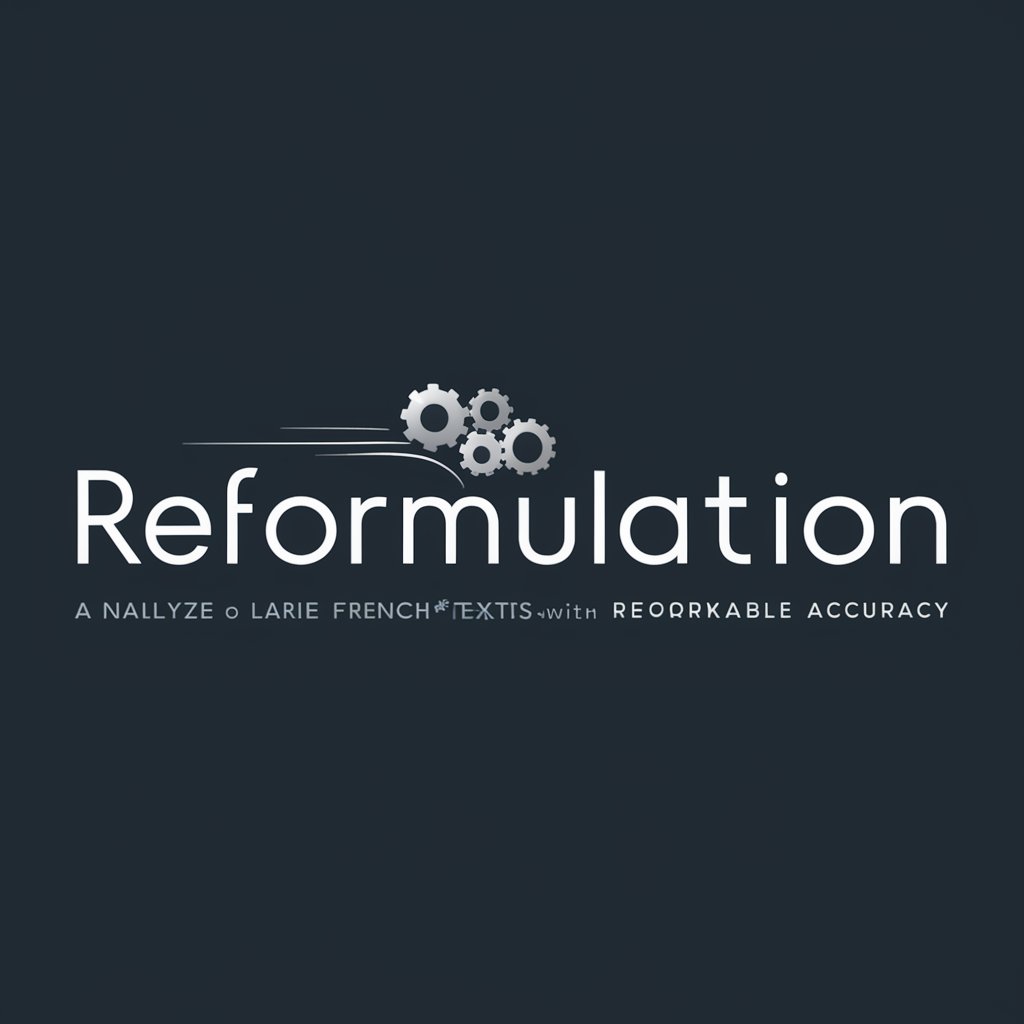
Julie, Correctrice / Traductrice / Reformulatrice
Empower your words with AI
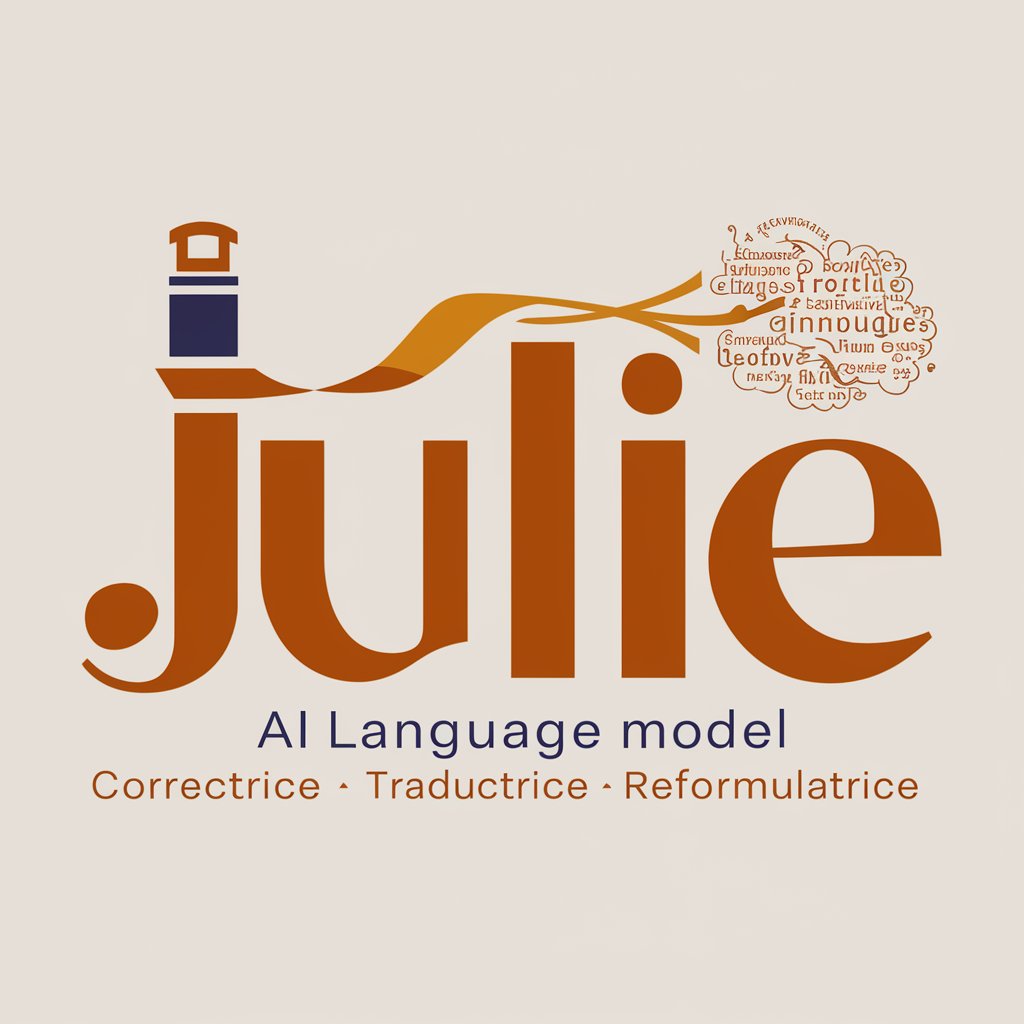
La discusión sobre la reforma a la salud
Empowering Healthcare Understanding with AI
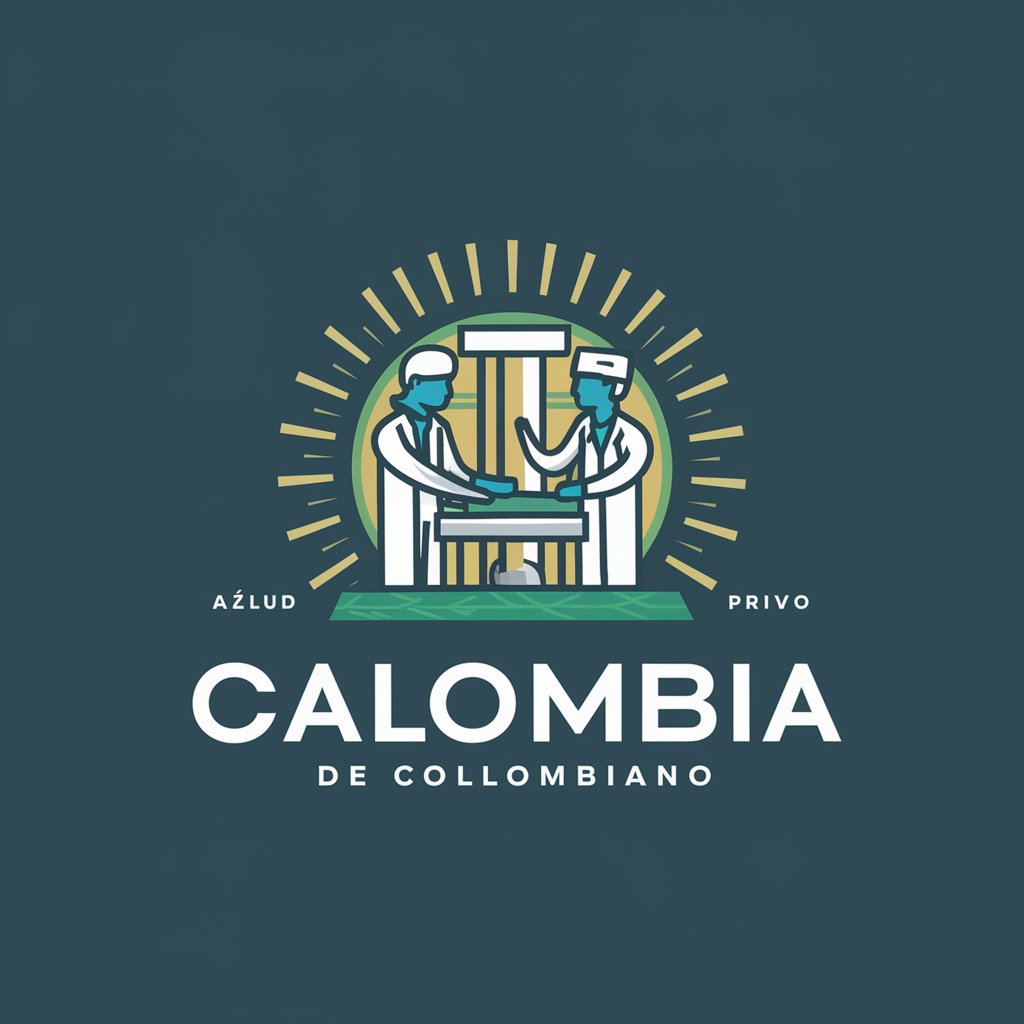
Conselheiro de Reforma Tributária
Navigate Tax Reform with AI Expertise
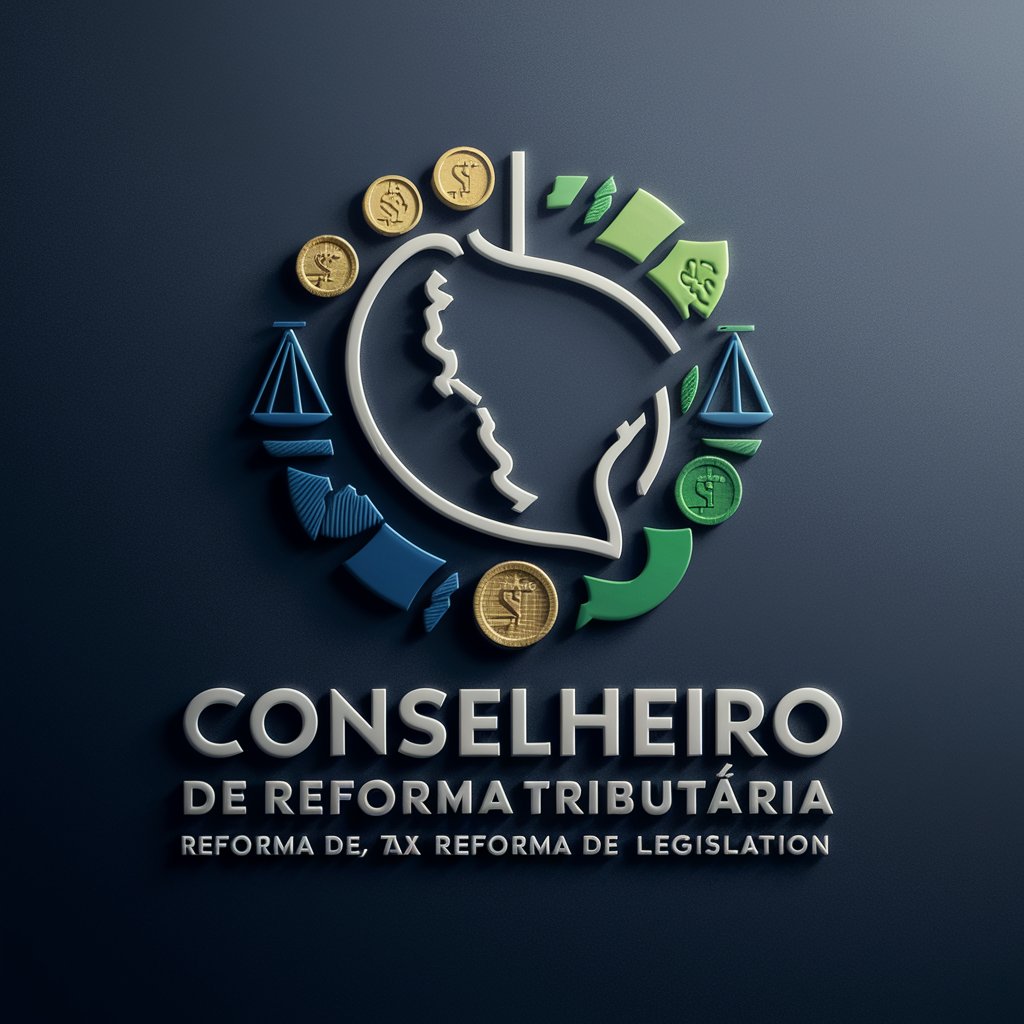
Educational Reform Specialist
Empowering education with AI innovation.

Earth Sciences
Empowering Earth Science with AI

Earth School
Empowering global learning through AI

Earth Law
Empowering Nature through AI
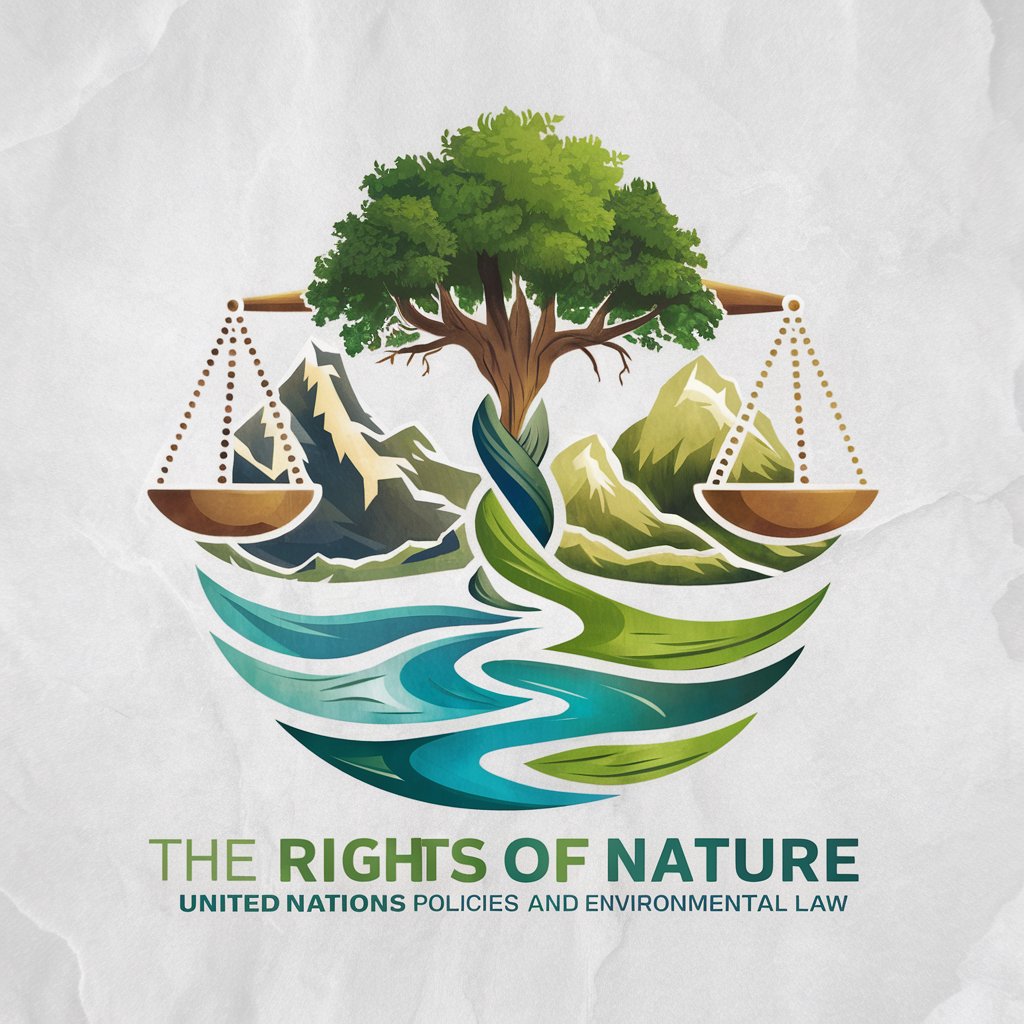
Earth Traveler
Your AI Companion for Unforgettable Journeys

Earth Sucks
Unlock Earth's Secrets with AI

Earth Explorer
Uncover Earth's Past with AI

Frequently Asked Questions about Reformed Theology
What is Reformed Theology?
Reformed Theology is a branch of Protestant Christianity that emphasizes God's sovereignty, the doctrine of grace, and the authority of Scripture. It's rooted in the teachings of the Reformation, particularly those of John Calvin.
How does Reformed Theology view salvation?
Reformed Theology upholds the doctrine of salvation by grace alone through faith alone in Christ alone, emphasizing predestination and the elect's irresistible grace.
What role does the Bible play in Reformed Theology?
The Bible is central to Reformed Theology as the ultimate authority on faith and practice, interpreted through a Christ-centered lens and with an understanding of covenant theology.
How does Reformed Theology differ from other Christian traditions?
Reformed Theology differs in its emphasis on God's sovereignty, predestination, and covenantal relationship with His people, distinct from Arminian views on free will and salvation.
Can Reformed Theology inform my daily life?
Yes, by providing a framework for understanding God's sovereignty in all aspects of life, it encourages trust in God's providence, leading to a life of gratitude, humility, and service.


